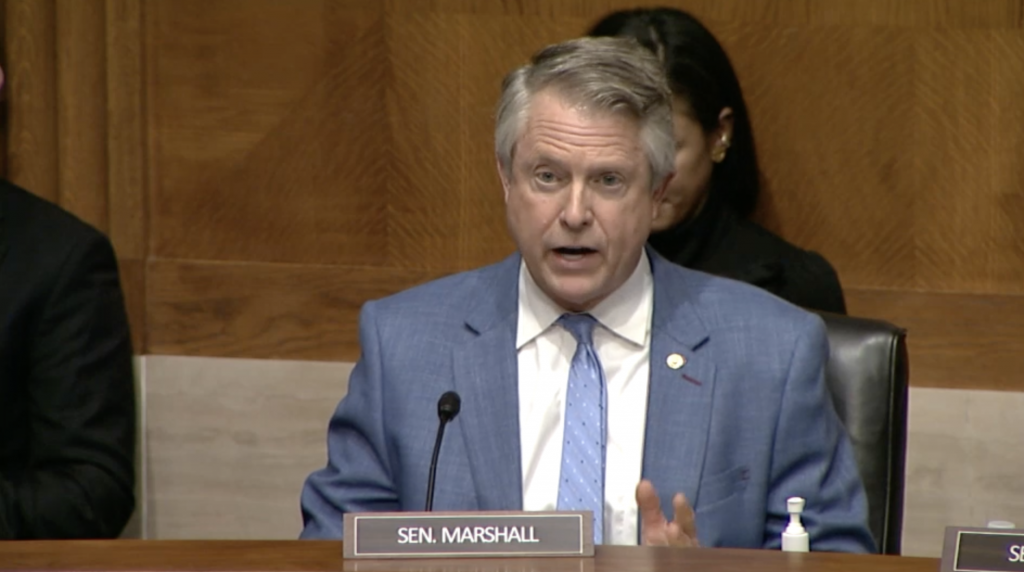Washington, D.C. – U.S. Senator Roger Marshall, M.D. chaired the Health, Education, Labor, and Pensions (HELP) Subcommittee on Primary Health and Retirement Security hearing, Avoiding a Cautionary Tale: Policy Considerations for Artificial Intelligence in Health Care. At the hearing, Ranking Member Marshall welcomed representation from his alma mater, the University of Kansas Health System. Dr. Keith Sale, the Vice President and Chief Physician Executive of Ambulatory Services, testified on behalf of the health system. Dr. Sale is a practicing physician and is also leading an initiative using AI to reduce administrative burdens associated with electronic health record keeping.

You may click HERE or on the image above to hear Senator Marshall’s full remarks.
Other witnesses included Thomas Inglesby, Director of the Johns Hopkins Center for Health Security, Kenneth Mandl with the Computational Health Informatics Program at Boston Children’s Hospital, and Christine Huberty with the Greater Wisconsin Agency on Aging Resources.
Highlights from his remarks include:
“Artificial intelligence and machine learning have great potential to revolutionize health care by developing new cures, improving health care, delivery, and reducing administrative burdens as well as overall health care spending. And we hope someday, someday, very soon, AI and machine learning will allow our clinical workforce to go back to practicing medicine.”
“Those of us in medicine, whether we’re a physician, a nurse, a counselor, we all long to spend more face-to-face time with our patients and less on medical records and administrative burden. Other opportunities for AI include developing better standards of care, increasing timely access to care, and perhaps most importantly, discovering innovative treatments, which includes monitoring disease progression and the effectiveness of those treatments.”
“But all that being said, my biggest concern we hope to address today is AI’s application and biosecurity and how it could be used to enable bioterrorism. After all, AI can help us prepare or react to the next pandemic, or it could also be used intentionally or unintentionally to develop novel pathogens, viruses, bioweapons, or chemical weapons.”
“As I’ve always said, those closest to the industry know the challenges. They understand the opportunities and the risks the best. They also know the most practical and impactful solutions as we look for guardrails that protect Americans but, at the same time, promote innovation.”
